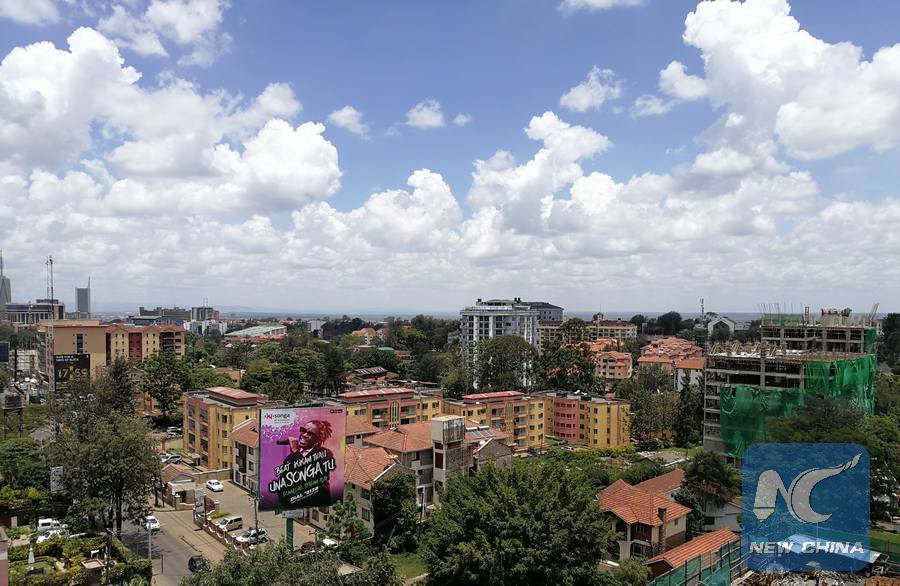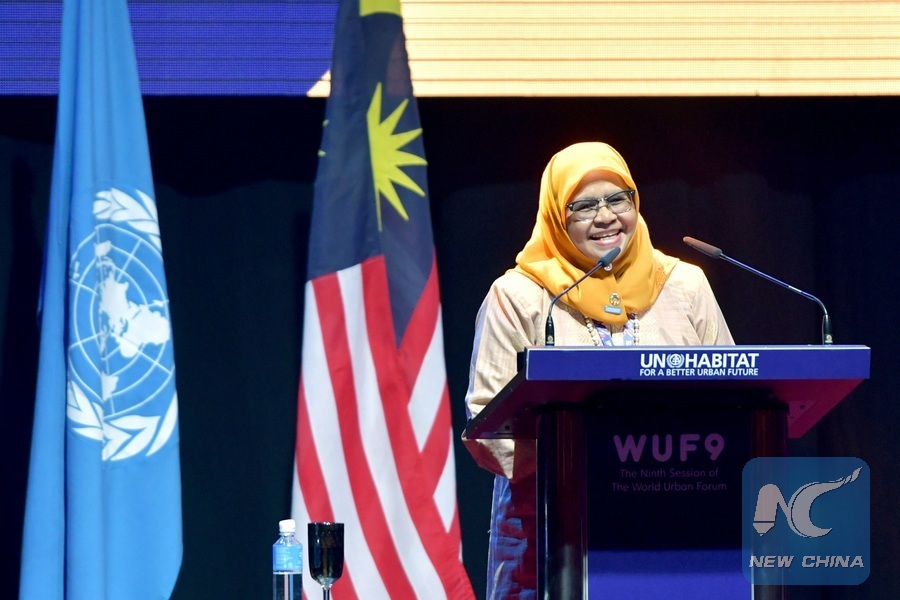
Photo taken on March 25, 2018 shows an urban view of Nairobi, capital of Kenya. (Xinhua)
NAIROBI, March 31 (Xinhua) -- The new head of the United Nations Human Settlements Program (UN-Habitat) has vowed to prioritize strengthening the housing agency to effectively tackle the challenges of rapid urbanization.
Maimunah Mohd Sharif, the Executive Director of UN-Habitat, said she will be guided by the principles of the new urban agenda and the UN's universal Sustainable Development Goals (SDGs) in tackling urbanization challenges.
Sharif added that the UN housing agency has innovative solutions that have been tried elsewhere with success.
"I want to make the agency more responsive to the needs of countries by helping them in addressing the challenges of rapid urbanization and at the same time harness the benefits of good urbanization," she told journalists in Nairobi.
"It is time to strengthen UN-Habitat and ensure we can effectively support countries to implement the new urban agenda in collaboration with all the United Nations system, all levels of government and stakeholders," she added.
The new urban agenda is the outcome document agreed upon at the UN-Habitat 3 cities conference in 2016. It guides the efforts around urbanization of wide range nation states, city and regional leaders, international development funders, UN programs and civil society for the next 20 years.
According to Sharif, tackling challenges in the cities was urgent since they are centers of economic growth and contribute to 70 percent of global GDP. If urbanization is well planned, it will lead to the achievement of SDGs, she said.
"While working on the new urban agenda, it will mean we have created jobs, this way she shall be curbing poverty, we shall improve on sanitation and we shall have handled the climate change challenge. All these are SDGs we shall have achieved to mention just a few."
Shariff said she has formed a task force to help re-strategize and harmonize its operations in Kenya, noting that the task force will help program activities in line with the government's vision and other development plans.
"We intend to scale up the good experiences in close collaboration with other stakeholders," Sharif said, noting that the UN agency is ready to offer expertise in supporting the government to realize its goal of availing one million houses within a specified period.

Maimunah Mohd Sharif, executive director of the UN Human Settlements Programme (UN-Habitat), speaks at the official opening of the ninth World Urban Forum (WUF9) in Kuala Lumpur, Malaysia, Feb. 8, 2018. The ninth World Urban Forum is held from Feb. 7 to Feb. 13 in Kuala Lumpur.(Xinhua/Chong Voon Chung)
"The seven thematic branches within the agency are set to come up with a harmonized development plan as opposed to the previous planning where the branches carried separate roles in the country," she added.
The official said it is important to improve the quality of life for all citizens, noting that most people move from rural to urban areas seeking better opportunities, yet end up disappointed.
Sharif said the UN system is ready to offer its expertise to support governments in achieving its objective of providing one million houses in Kenya.
She said the UN housing is currently helping Kenya establish a long-term solid waste management strategy that incorporates youth entrepreneurship through waste recycling in Kisii Town in Western Kenya.
Sharif said the UN agency is also helping strengthen planning for resettlement and integration of refugee communities, a project that includes peace and social cohesion, community resilience, humanitarian and land tools to support tenure security enhancement in informal settlements.
"We are keen at ensuring that people that live in informal settlements have good quality of life," she said, noting that with planned urbanization, countries are capable of achieving the SDGs by ending poverty, providing clean water and promoting climate action projects.

